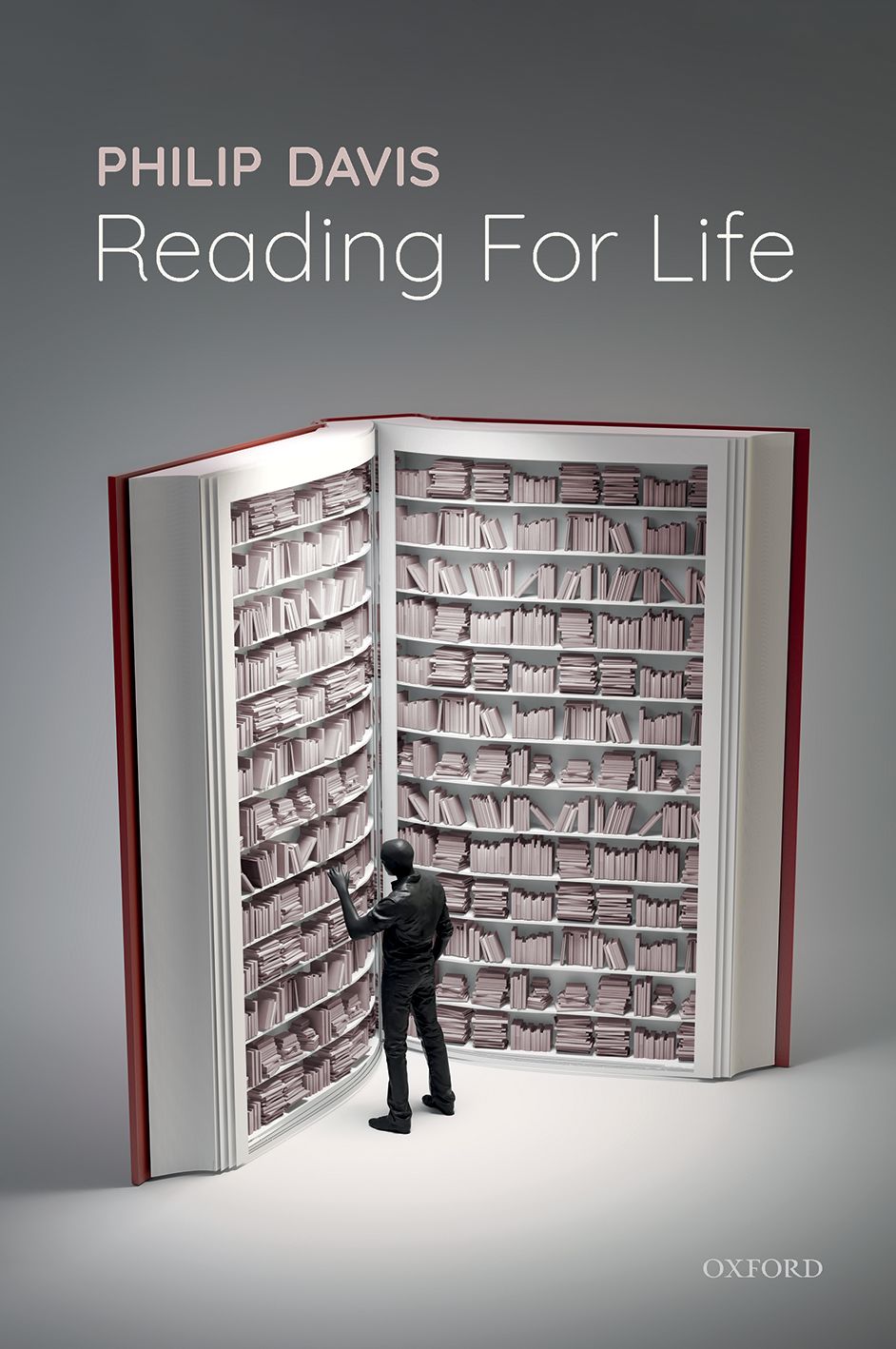Reading to heal ourselves
Philip Davis, Emeritus Professor of English Literature at the University of Liverpool and author of Reading for Life shares how literature can heal us, recover emotions lost, and help us not only get through tough times, but connect on a human level...

A boy sits in his bedroom. He has no father, his father died a few months even before he was born. He has a mother but she has now remarried and his new step-father is unkind to him. That is why he is confined to his room. All he has for company are a few novels that his father once owned and no one else cares about now. He reads them while he can hear other children free to play happily outside. But he is not allowed out. So he reads instead, impersonating the characters when he puts the book down.
This is not me. It is Dickens’s David Copperfield, reading in solitary confinement (says Dickens) ‘as if for life’. Reading for Life is the title I took for my book on readers and the relation between their favourite books and their existences, their memories, their feelings. And that is what so many Victorian novels such as David Copperfield are good for: bringing back to life all those vulnerable feelings you half-bury, though that does no good. You can watch the recent film of David Copperfield starring Dev Patel or the adaptation on the Drama channel including Daniel Ratcliffe. But nothing is a substitute for the actual written words: I mean, you might have expected David to feel sad that he never saw his own father. But actually what David says most hurt him was ‘the fact that he never saw me’. Thinking about the poignant difference that makes is what reading is all about.
And it needn’t just be David Coppoerfield: try Mrs Gaskell’s novel Ruth, about a unmarried mother in an age of taboos who nonetheless feels so glad to have her child. I read to recover these feelings. A psychiatrist I have worked with runs a reading group in his hospital: the people read a book together live, on the spot, slowly and aloud, with pauses for talk about it. He says that one of the great things about this shared reading is that he is no longer the expert, he has a different relation to the people to whom he is normally the doctor-boss. But best of all he says is that it has changed his own idea of recovery. Usually that means getting over things, moving on, looking only to the future now. But the psychiatrist says that what reading great literature does is real recovery – recovering lost emotions – emotions from the past which you thought has been lost forever, irrevocably damaged as a result of trauma, the harm you had done or had done to you. Yet these emotions, vulnerable or innocent or idealistic, can be recovered from the past by the power of reading.
So here is the thing, even with great classic literature: it may look refined or special but what its language actually produces in you is something surprised and raw. My motto is: no emotion, no good. Not art for art’s sake, but art for the sake of life.
And it isn’t just novels. What do you think when you hear the word ‘poetry?’ Something hard to understand, elitist and fancy, irrelevant to ordinary life? I work with The Reader, a Liverpool-based national charity that brings people of all ages and walks of life together in small numbers to share, aloud and alive, the reading of works of literature, offering more than 500 groups a week nationwide. The Reader works in prisons, GP centres, care homes, drug and rehab centres, schools, libraries, facilities for looked-after children — reading aloud anywhere, with any one, to encourage people to find what good can reading – even reading poetry – do for you.
And here’s what it is really like. A woman, in trouble with her health, goes to a reading group and the poem they read together, called ‘A Quiet Life’, is about – what? Nothing fancy, just boiling an egg. Only the woman was in such a state at that time that she could hardly do even that. But the poem says that what goes into the simple boiling of an egg is actually complicated:
What a person desires in life
is a properly boiled egg.
This isn’t as easy as it seems.
There must be gas and a stove,
the gas requires pipelines, mastodon drills . . .
In the midst of a breakdown, the woman thought, ‘Oh my God, for me to be like a little efficiently boiled egg, I’ve got to go and dig all of this up again out of the past.’ She thought she was carrying a great broken infrastructure inside her own head. This is what moves me: stories of the use of books in relation to ordinary human lives. It didn’t matter that the poem wasn’t cheerful: what did her good was that it offered a voice for her struggles. I sent her appreciation of the poem to the poet himself, an aged man, living in Maine USA, called Baron Wormser. Reading her response to his words from years ago, he said: ‘I found myself weeping.’ And I told her this, and she too was glad. So the feelings go around. Today she is a volunteer for The Reader, running three reading groups. Of course at the moment the groups can’t meet: it is all having to be done either on-line or over the telephone. But the books are still there.
I think the reading of literature is often more useful even than self-help books – because it is not about having to think of yourself as a person with mental-health problems, labelled as a case in need of a programme. Literature thinks that a boy in his bedroom or a young girl made pregnant or a woman struggling even to cook – all these are just human beings, normal people understandably hurt by painful situations.
But it is not just pain. Here is a middle-aged man we’ll call Harry, a group-member reading some lines from R.S. Thomas’s poem ‘Rich’ in Angela Macmillan’s lovely anthology, A Little Aloud about another seemingly simple experience — letting in beautiful moonlight through the curtains:
Ah let me when night
comes, offer the moon
unhindered entry through trust’s
windows . . .
And suddenly, by the trigger of poetry, Harry found himself recovering the memory of his ailing grandmother asking him, in hospital, when her own final night was coming, ‘Am I dying?’ What it was in his grandmother that this quiet question came out of, Harry said, was somehow not one thing but more like two things together: ‘It was like she was being both brave and helpless’, still the old woman who had cared for him when his parents hadn’t, but also vulnerably mortal in turning to him now. ‘Have I died?’ she then asked him. These words never left him: they were the unwritten poetry of common life. He felt able to let in their memory again, and let it out in words to the people in his group, because of R.S. Thomas’ written verse. And that felt like love again, shared even in sorrow. Don’t cover it all up, says the poem, quietly: trust yourself to open your windows.
Reading literature is not ‘good for mental health’ because it is always nice and hygienic, or upbeat and positive, or escapist, or instructive. What people perhaps most want is expression – words and a voice for everything they feel – and not just cheering up. The emotion cannot always be a happy one, just a deep one. But here to end on, is a seventeenth-century poet, George Herbert coming back to life, to simple happiness after a long bad time in the dark:
And now in age I bud again,
After so many deaths I live and write;
I once more smell the dew and rain,
And relish versing. Oh, my only light,
It cannot be
That I am he
On whom thy tempests fell all night.
Can it be the same me who went through all that dark night? Yet here I am, in the light, in the morning dew and rain – and relishing the words that can speak of all this. An ordinary miracle.
By Philip Davis, Emeritus Professor of English Literature at the University of Liverpool and author of Reading for Life (Oxford University Press, £25). Reading for Life is an account of the work done by his research unit, the Centre for Research into Reading, Literature and Society (CRILS) in partnership with outreach charity The Reader since 2008.










